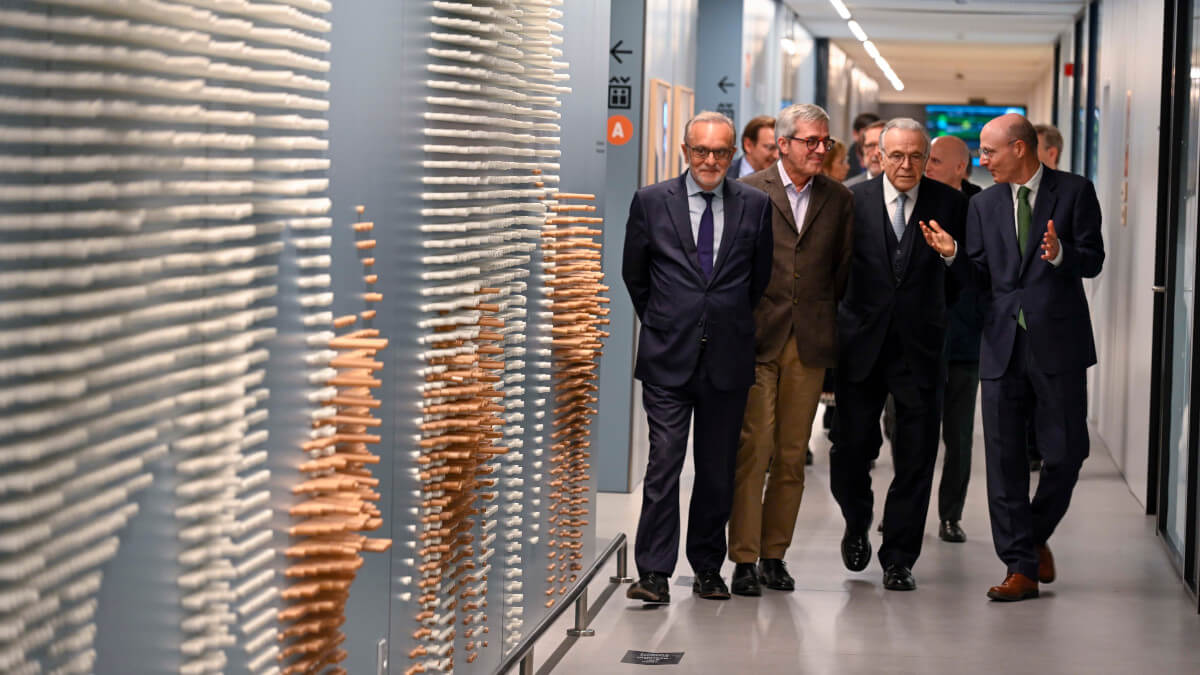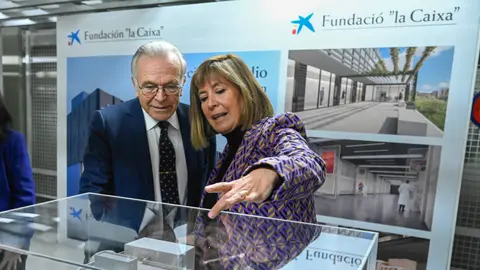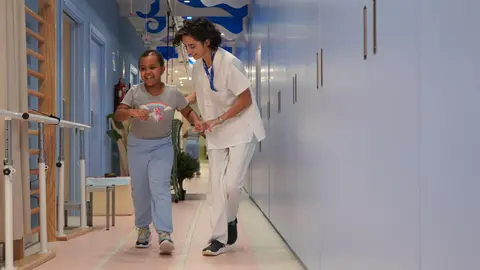The "la Caixa" Foundation will promote the commitment of the Hospital Sant Joan de Déu to research into minority paediatric illnesses

The "la Caixa" Foundation is opening a new line of action to support the research carried out by the Hospital Sant Joan de Déu into paediatric minority diseases over the next three years, according to the agreement signed by the Chairman of the "la Caixa" Foundation, Isidro Fainé; the Managing Director of the Hospital Sant Joan de Déu in Barcelona, Manel del Castillo; the Director of the Fundació per a la Recerca Sant Joan de Déu, Emili Bargalló, and the Director of the Institut de Recerca Sant Joan de Déu, Joan Comella.
The agreement envisages a contribution from the "la Caixa" Foundation of 2.5 million euros a year - 7.5 million over three years - with the aim of stability. The aim is to promote research into minority paediatric diseases.
Minority diseases, which affect more than three million people in Spain, represent a very important health and social challenge due to the impact they have on patients' quality of life. They include more than 10,000 pathologies of low prevalence, i.e. with less than 5 cases per 10,000 inhabitants. In 80% of cases, they manifest in childhood and are chronic throughout life, with great difficulties in diagnosis, lack of specific treatments and loss of autonomy for patients.
The Hospital Sant Joan de Déu in Barcelona is the centre that treats the most children with rare diseases in Europe, with more than 28,000 active patients corresponding to more than 1,400 different pathologies.
It also coordinates the Únicas project, a networking ecosystem of 30 Spanish hospitals that aims to create and consolidate an innovative model of comprehensive care. The aim is to achieve specialised, multidisciplinary care for paediatric patients affected by rare diseases from a healthcare, social, technological and research perspective in order to improve diagnosis and offer new treatments for these patients, thereby also improving their quality of life and that of their families.
The Únicas project envisages the creation of a platform that allows the storage and federated sharing of data between hospitals; a platform to support research to reduce the percentage of undiagnosed patients and increase the number of specific therapies; and the creation of a specialised telemedicine centre and a school for caregivers, in addition to improving patients' access to the care they need.
In the words of the Chairman of the "la Caixa" Foundation, Isidro Fainé: "Research is a great ally in achieving one of the priority objectives of our organisation: to improve the quality of life of people in vulnerable situations. That is why we are pleased to be able to closely accompany reference centres such as the Hospital Sant Joan de Déu in their work. Together, we want to answer some of the existing questions about minority diseases and thus contribute to putting the focus and the necessary resources on them to improve the health of paediatric patients".

On the other hand, the managing director of the Hospital Sant Joan de Déu, Manel del Castillo, considers that the support of the "la Caixa" Foundation for the Hospital's research into minority diseases "will be fundamental to speed up the diagnosis of these patients and also to increase the number of specific therapies, fundamentally based on advanced and emerging therapies".
This initiative reinforces the existing collaboration between the "la Caixa" Foundation and the Hospital Sant Joan de Déu, which includes the Childhood Cancer Research Unit - CaixaResearch, at the Sant Joan de Déu Paediatric Cancer Centre; the CaixaResearch - Artificial Placenta project, and the Comprehensive Care Programme for People with Advanced Diseases.
Difficulties in diagnosis
The existence of more than 10,000 minority diseases, some of them ultra-rare (of which there are only a few cases worldwide), makes diagnosis difficult because they are unknown, even to many health professionals. This situation means that many children have to wait years and undergo dozens of tests and visits to numerous specialists before a definitive diagnosis can be made.
Currently, the average waiting time for diagnosis is four years from the time the first symptoms appear until the disease is diagnosed. This figure can rise to 10 years in 25% of patients. It should also be noted that today 95% of minority diseases have no specific treatment.










